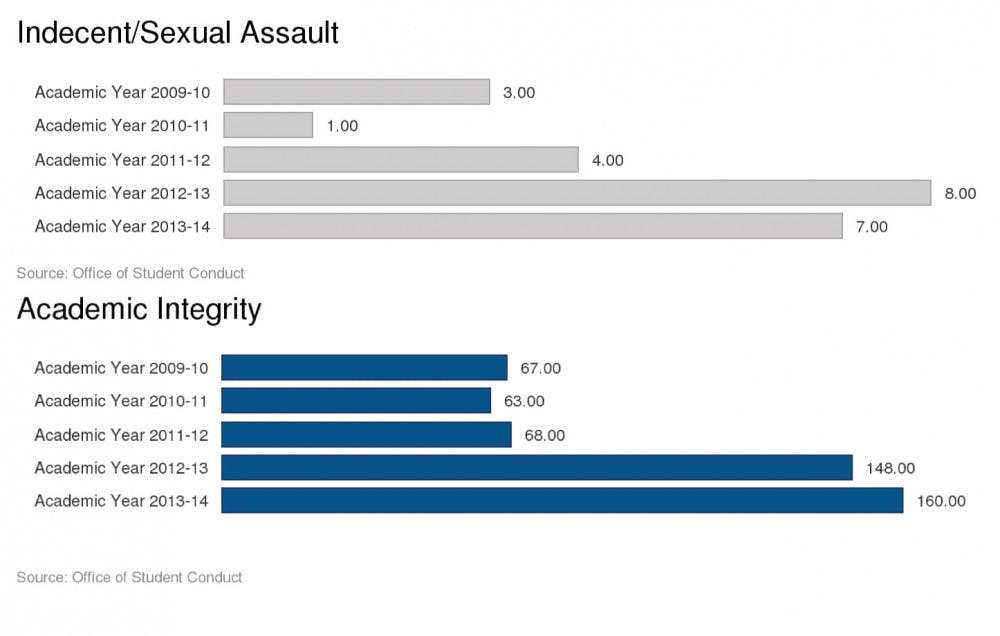
With the recent release of its disciplinary reports, the Office of Student Conduct moves forward in its efforts to be more transparent and available to the Penn community.
Last week, OSC released the backlogged reports of its disciplinary cases between 2009 and 2014 after a Daily Pennsylvanian article and an editorial highlighted the missing reports.
“It’s really important that our office communicates our information on a more regular basis,” OSC Director Julie Nettleton said. “It is something we will be doing in the future, so the Penn community can expect that.”
The report indicates a rise in academic integrity cases since 2012, while student conduct cases have steadily declined over the years.
Since OSC investigations come out of referrals from students and faculty, the cases often relate to the most widespread concerns on campus each year. The report shows that the number of “indecent sexual assault” cases hit an all-time high in the 2012-2013 year — a peak in the data that may reflect the increasing media exposure on sexual assault in recent years, Nettleton said.
“What’s going on, on campus and nationally, influences how and when and why we get cases, so the context and culture on campus influences what case referrals we get,” Nettleton said.
In order to become more accessible and transparent, OSC is developing liaison roles for its staff throughout campus. Since students or faculty members have to reach out to OSC for an investigation to happen, OSC is “being very intentional about outward proactive engagement to give people increased comfort in approaching the office,” Nettleton said. “I’m very committed to repositioning this office to be very much a part of the Penn community.”
Nettleton also qualified the findings of OSC’s reports, explaining that the data does not always reflect the disciplinary trends across campus.
“For instance, if several students are involved with just one incident, one case can really skew the data for a given year,” Nettleton said. “This type of data will never tell the whole story, but the report is definitely one of the pieces of information that we use to determine whether we are achieving a certain goal and what areas we need to focus on.”
The report excludes the incidents that were brought to OSC but never became official cases. After consulting with the office about the process of an investigation, many students and faculty members decide against pushing for a formal case, Nettleton said.
“We are a resource to faculty and students, but we don’t force them to utilize the resource and turn the incident into a case,” Nettleton said.
The Daily Pennsylvanian is an independent, student-run newspaper. Please consider making a donation to support the coverage that shapes the University. Your generosity ensures a future of strong journalism at Penn.
DonatePlease note All comments are eligible for publication in The Daily Pennsylvanian.







